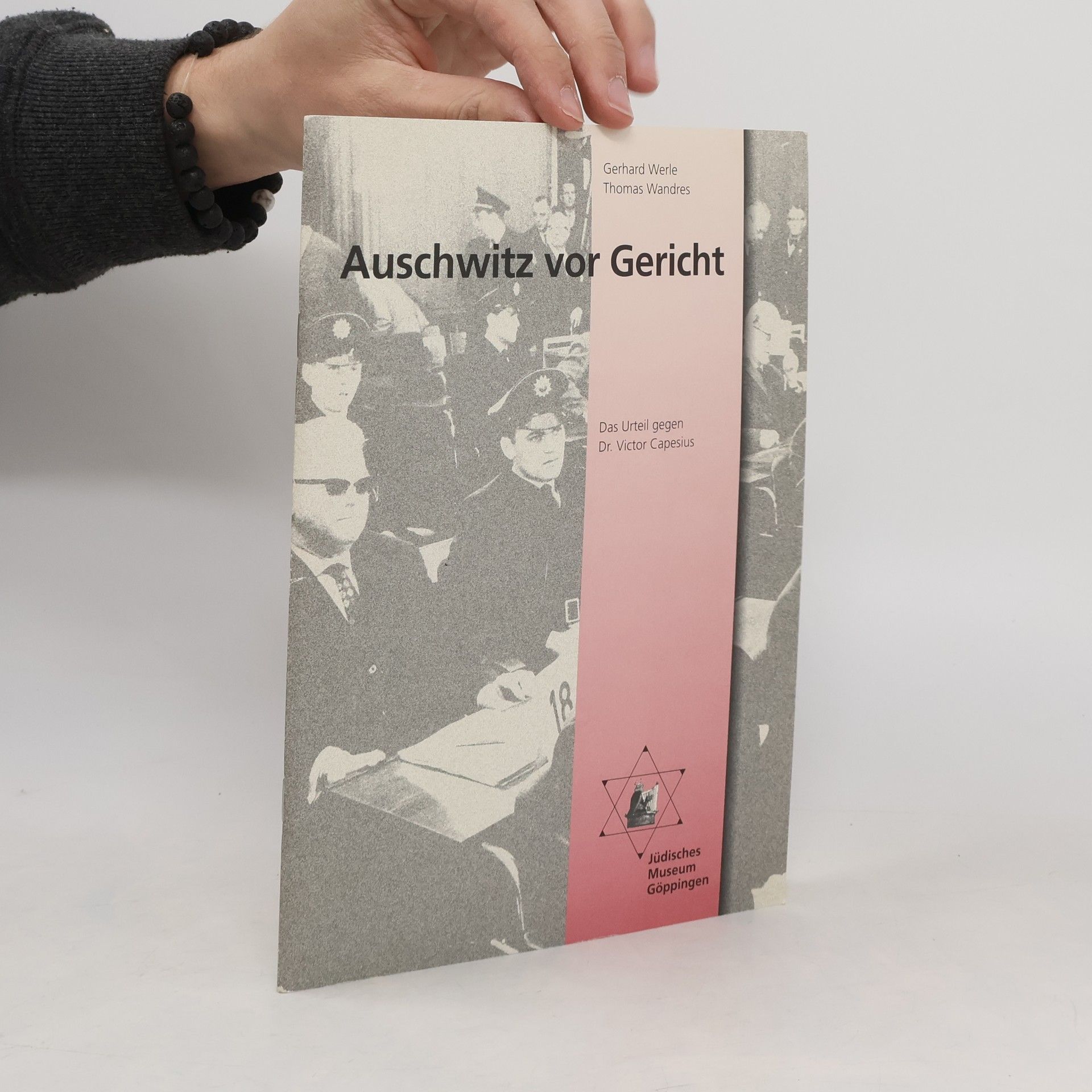Focusing on the evolution of transitional justice post-Cold War, this textbook delves into its fundamental principles and mechanisms such as prosecutions, amnesties, truth commissions, reparations, and public service vetting. It provides a comprehensive analysis of the legal frameworks surrounding these processes and addresses contemporary challenges in implementing transitional justice.
Gerhard Werle Book order (chronological)




Völkerstrafrecht
- 997 pages
- 35 hours of reading
Das Lehrbuch zum Völkerstrafrecht bietet eine fundierte Analyse der Grundlagen und des Allgemeinen Teils des Völkerstrafrechts sowie der spezifischen Völkerrechtsverbrechen. Es berücksichtigt aktuelle internationale Rechtsprechung und Literatur und enthält neue Abschnitte zu kritischen Themen wie der Fragmentierung des Völkerstrafrechts und den Kriegsverbrechen in Syrien und Nordirak. Zudem wurden die Kapitel über Sklaverei, sexualisierte Gewalt und Angriffe auf Kulturgüter umfassend überarbeitet. Weitere Schwerpunkte sind die Quellen und die Auslegung des Völkerstrafrechts sowie die strafbare Beteiligung und Immunität.
Die Macht und das Recht
Völkerrecht und Völkerstrafrecht am Beginn des 21. Jahrhunderts
- 461 pages
- 17 hours of reading